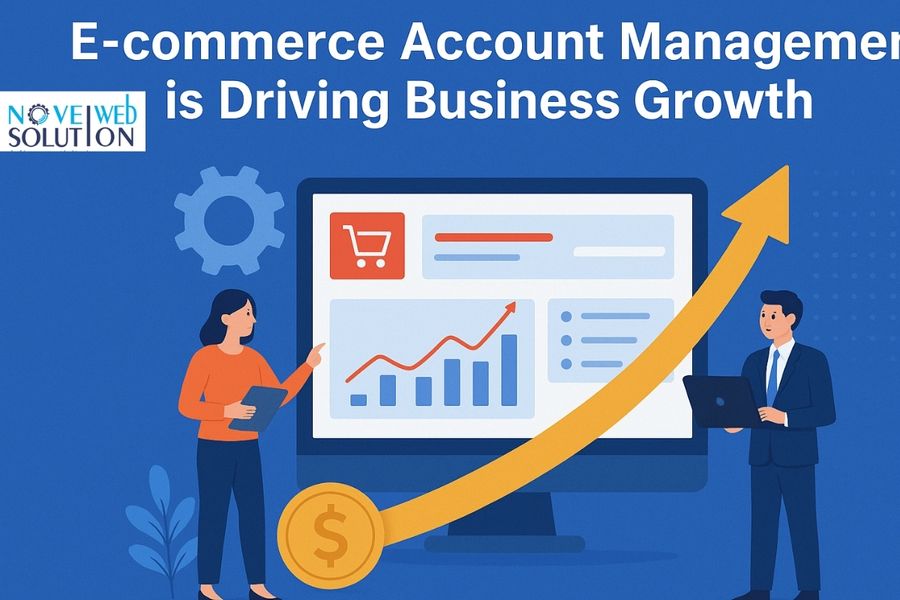In today’s fast-paced digital world, e-commerce has become a vital aspect of business operations. With the growing number of online shoppers, companies need a strong online presence to stay ahead of the competition. A key element of a successful e-commerce strategy is effective account management. In this article, we’ll learn how e-commerce account management can accelerate business growth and help companies thrive in the competitive online marketplace.
E-commerce Account Management: An Overview
E-commerce account management involves the strategic management of online sales channels, such as websites, marketplaces, and social media platforms. This includes tasks such as inventory management, order processing, customer support, and marketing. Effective account management can help companies streamline their e-commerce operations, improve the customer experience, and boost sales growth.
Benefits of E-commerce Account Management
Improved Customer Experience
By managing e-commerce accounts effectively, companies can provide customers with a seamless shopping experience. This includes easy navigation, secure payment options, and timely order fulfillment.
Increased Sales
A well-maintained e-commerce account can attract more customers and encourage repeat purchases. By optimizing product listings, offering promotions, and providing excellent customer service, companies can drive sales growth.
Enhanced Brand Reputation
Consistent account management can help companies build a strong brand presence online. By engaging with customers, addressing their queries and concerns, and delivering high-quality products, companies can enhance their reputation and build customer trust.
Data-driven Decision Making
E-commerce account management allows companies to track key performance metrics such as sales, traffic, and customer feedback. By analyzing this data, companies can make informed decisions to optimize their e-commerce strategy and drive business growth.
How to Improve E-commerce Account Management
To maximize the benefits of e-commerce account management, companies can implement the following strategies:
Use E-commerce Platforms and Tools
Utilize e-commerce platforms and tools such as Shopify, WooCommerce, and Magento to streamline account management tasks. These platforms offer features such as inventory management, order processing, and customer relationship management to help businesses manage their online operations effectively.
Optimize Product Listings
Create detailed product listings with high-quality images, accurate descriptions, and competitive pricing. Use search engine optimization (SEO) techniques to enhance product visibility and attract more customers to your e-commerce account.
Provide Excellent Customer Service
Respond to customer inquiries promptly, address their concerns, and provide personalized support. By offering exceptional customer service, companies can build customer loyalty and drive repeat purchases.
Analyze Performance Metrics
Monitor key performance indicators such as sales conversion rates, customer retention rates, and average order value. Use this data to identify areas for improvement and implement strategies to optimize your e-commerce account performance.
By implementing these strategies and leveraging the power of e-commerce account management, companies can drive business growth and achieve success in the competitive online marketplace.
Conclusion
ecommerce account management plays a vital role in driving business growth and helping companies thrive in the digital age. By focusing on improving customer experience, increasing sales, enhancing brand reputation, and leveraging data-driven decision making, companies can maximize the benefits of effective e-commerce account management. By embracing these strategies and best practices, companies can stay ahead of the competition and achieve sustainable growth in the ever-evolving e-commerce landscape.
Read More: CRM vs. Ecommerce Account Management Tools: What’s the Difference?

